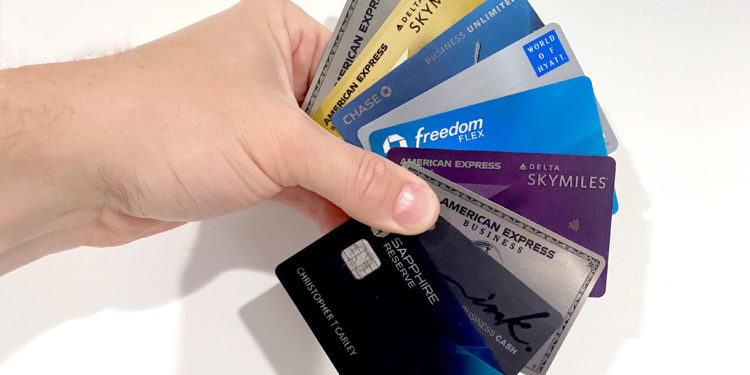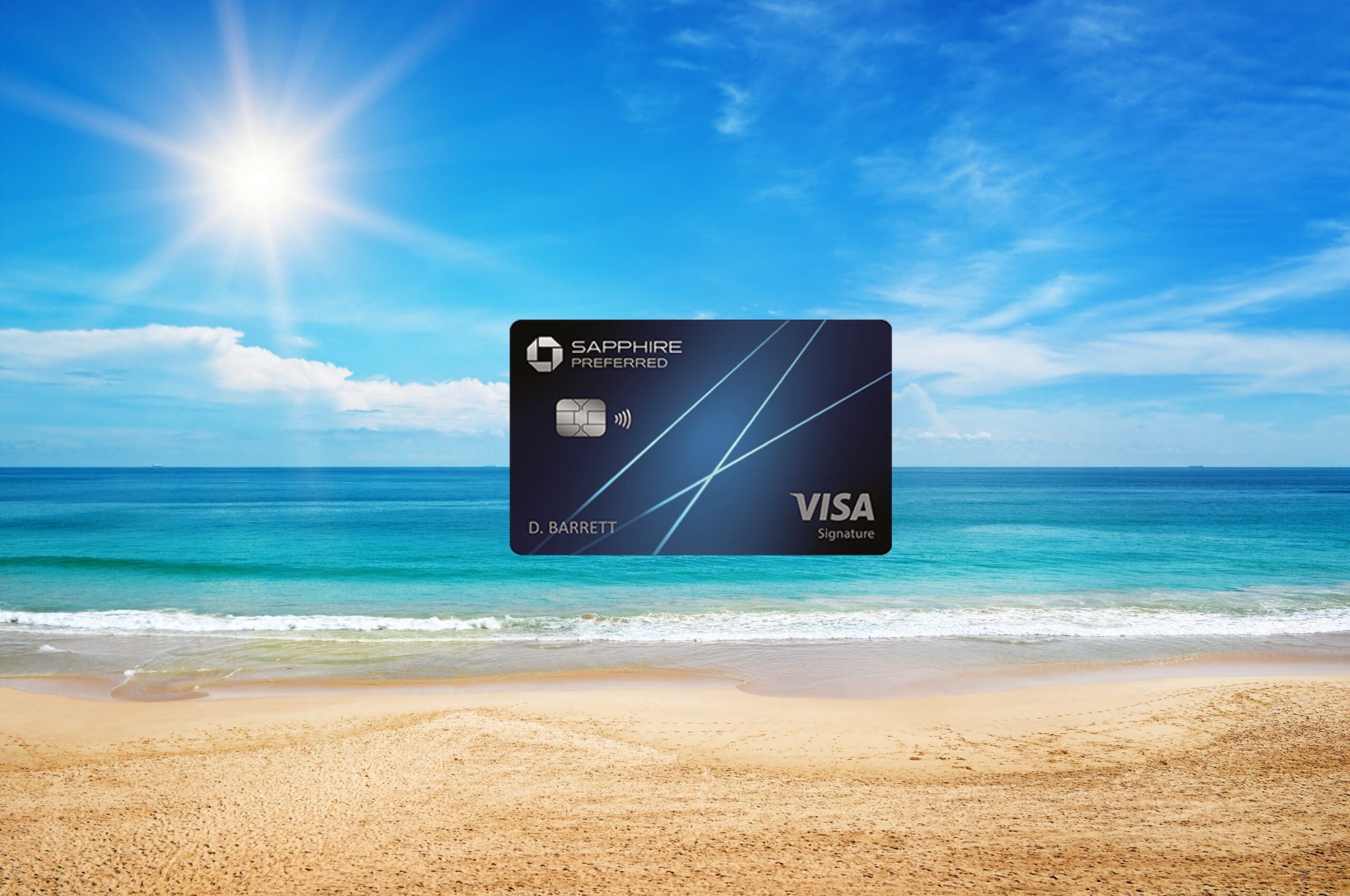Advertiser Disclosure: Eye of the Flyer, a division of Chatterbox Entertainment, Inc., is part of an affiliate sales network and and may earn compensation when a customer clicks on a link, when an application is approved, or when an account is opened. This relationship may impact how and where links appear on this site. This site does not include all financial companies or all available financial offers. Opinions, reviews, analyses & recommendations are the author’s alone, and have not been reviewed, endorsed, or approved by any of these entities. Some links on this page are affiliate or referral links. We may receive a commission or referral bonus for purchases or successful applications made during shopping sessions or signups initiated from clicking those links.
I hope your week was better and less expensive than mine.
Mine started Sunday night in the emergency room. I was warned a few weeks ago during a routine checkup that I was hosting a kidney stone. Well, some early symptoms showed up on Saturday. On Sunday evening, I could barely walk. The pain was so severe I threw in the towel and crawled into the ER.
If links don’t display or you can’t click them, turning off ad blockers should enable you to see and access all the content. And you’re supporting Eye of the Flyer. Thank you!
Turns out the kidney stone wasn’t ready and decided to stay a while. Cut to later in the week: a doctor’s appointment, an ultrasound, a CT scan, and bloodwork found that I’m in good health. And my kidney stone is still resting comfortably in the Carley Kidney B & B. We have no idea what caused the weird issue earlier in the week.
Oh, and a doctor removed a toenail Friday afternoon. (I broke one of my big toes in May. The toenail died and was close to falling off.)
So, in addition to the mysterious crippling pain I felt for a few days, there’s more agony on the way: insurance copayments. (And that damn kidney stone at some point.)
But credit card cashback or points are somewhat of a salve for that misery.
My wife and I are usually chasing some sort of minimum spending requirement on a credit card for a retention offer or ongoing/yearly promotion. Or maybe we just got a new credit card and need to reach the welcome offers’s spending requirement.
So, at least, we’re earning something.
But, darn it, I wish something like “general health expenses” or “medical expenses” were a bonus category on more credit cards. The AARP® Essential Rewards Mastercard® from Barclays offers 2% cash back on eligible medical expenses. Big whoop. The Citi® Double Cash Card – 18 month BT offer earns 2% cashback on each purchase. (All information about the AARP® Essential Rewards Mastercard® from Barclay and Citi® Double Cash Card – 18 month BT offer was collected independently by Eye of the Flyer and was not reviewed by its issuing bank.)
Here’s something slightly better: the Upgrade Triple Cash Rewards Visa® offers 3% cashback on auto, home, and health categories. (All information about the Upgrade Triple Cash Rewards Visa® was collected independently by Eye of the Flyer and was not reviewed by its issuing bank.)
Now we’re getting somewhere!
Medical expenses are very real for many people. (I wish my daughter’s pediatrician offered a loyalty program.) I wish more mainstream cards offered incentives for medical and health for spending made on doctor visits, lab tests, imaging (CT, MRI, etc.), hospital stays, etc. I think the banks know they’ll get our money. But if one (or more) of them offered 3-4X on those purchases, I think they’d get some new customers — and retain a few more.
For what it’s worth, both the a $200 bonus (awarded as 20,000 bonus Chase points) after you spend $500 on eligible purchases within three (3) months of being approved for the card. and Chase Freedom Flex®offer 3X Chase Ultimate Rewards®® (equal to 3% cash back) at drugstores. So that’s certainly a good step. (All information about the Chase Freedom Flex® was collected independently by Eye of the Flyer and was not reviewed by its issuing bank.)
What do you think?
Advertiser Disclosure: Eye of the Flyer, a division of Chatterbox Entertainment, Inc., is part of an affiliate sales network and and may earn compensation when a customer clicks on a link, when an application is approved, or when an account is opened. This relationship may impact how and where links appear on this site. This site does not include all financial companies or all available financial offers. Opinions, reviews, analyses & recommendations are the author’s alone, and have not been reviewed, endorsed, or approved by any of these entities. Some links on this page are affiliate or referral links. We may receive a commission or referral bonus for purchases or successful applications made during shopping sessions or signups initiated from clicking those links.












I agree. We spend a lot on medical bills every year. Some extra points or miles would help ease the pain.
Hope you are feeling better.
I think cc companies want to avoid incentivizing large common every day expenses as much as possible. I think the only reason they offer big rewards on groceries, dining, gas, is because it would be largely unappealing to only incentivize discretionary spend.
A lot of people would sign up for a credit card with a bonus category for medical expenses. It would make a huge difference with high deductibles. It would even make co-pays a little more tolerable. In my dream world, the bonus category would include medical insurance premiums for those of us who self-insure.
P.S. About your kidney stone…
You have my sympathies. I had one stuck an inch outside my right kidney that required surgical removal. The pain can be excruciating. The patient next to me in the emergency room told me that passing a kidney stone was more painful than giving birth, and that she had done both twice!
Your doctor likely advised staying well-hydrated [now and in the future] along with possible dietary changes. You might ask about trying chanca piedra [literally “stone breaker” in Spanish; a traditional medicine for kidney stones in Central and South America]. I am not a doctor, but I find the liquid form works best.
Finally, be sure to ask the doctor for something to make you feel more comfortable. Given all of the opioid-related lawsuits, doctors seem to almost preemptively prescribe less pain medication these days. But they can definitely help you feel better until the stone passes, hopefully soon!
Thank you!!!
Good bonus category for World of Hyatt Card and as much as they try to follow the “health and wellness” theme.
You’re right but have you considered that self-employed personnel can deduct all medical expenses on their tax return if they file Schedule C? I don’t earn 3% but I always pay my medical bills with my AmEx Blue Business Plus for 2% (luckily, I never have exceeded $50,000 out of pocket per annum).
The Upgrade Triple Cash Rewards Visa looks interesting. I’ll give it some thought and, should I choose to apply, use your link to return the great loyalty you show your readers.
With a $7800 deductible I agree with you!!!! Hope the KS leaves on its own or When is your Lithotripsy?
I haven’t thought it through and probably don’t have the knowledge for an in-depth analysis, but I wonder if driving spending on health care is a good idea. For consumers, it would be attractive because most who are interested in credit card rebates are insured and will be reimbursed for at least a portion of their spend. On the road to 200000 LP, I certainly pulled out my AAdvantage Silver for my recent medical foray. Payers would be less than enthused if patients were offered an incentive to spend more.
I haven’t thought it through and probably don’t have the knowledge for an in-depth analysis, but I wonder if driving spending on health care is a good idea. For consumers, it would be attractive because most who are interested in credit card rebates are insured and will be reimbursed for at least a portion of their spend. On the road to 200,000 LP, I certainly pulled out my AAdvantage Silver for my recent medical foray. Payers would be less than enthused if patients were offered an incentive to spend more. Even at 1 point/dollar many could meet initial bonus spend requirement with one surgery.